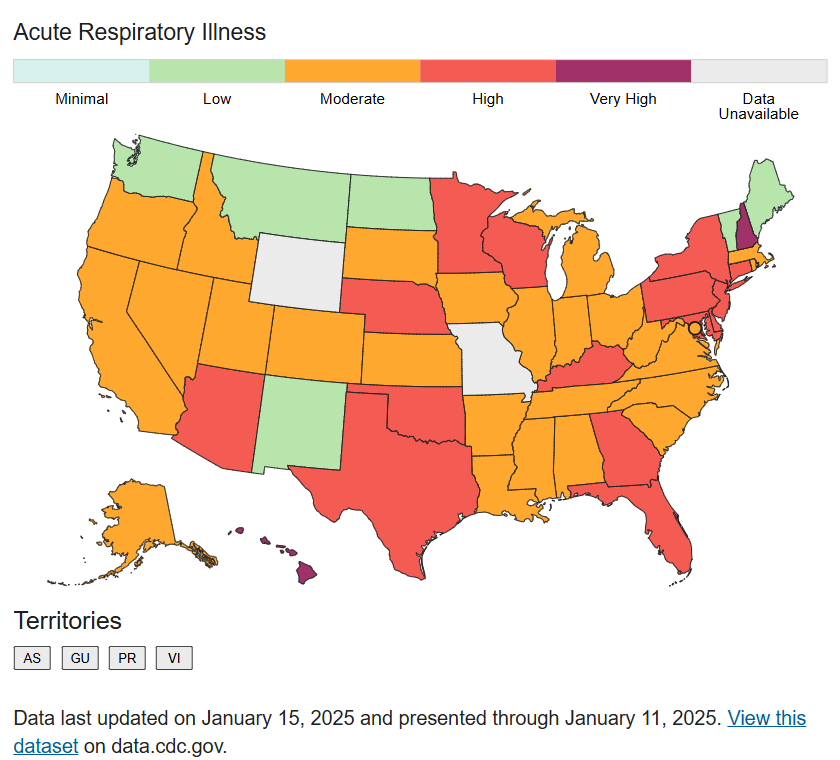Kentucky has ‘very high’ rate of respiratory illness

By Melissa Patrick
Kentucky Health News
Kentucky is seeing a “very high” rate of respiratory illness, especially among children.
“We are seeing somewhere between 10 to 20 patients each day in the children’s hospital needing admissions,” Dr. Lindsay Ragsdale, chief medical officer for Kentucky Children’s Hospital, said at an online press conference on Jan. 17.
Statewide, the Kentucky Respiratory Disease Dashboard shows that in the week ending Jan. 11, 19% of the state’s emergency department visits and 23% of its inpatient encounters were related to respiratory illness.
Ragsdale and Dr. Nicholas Van Sickels, medical director for UK HealthCare Infection Prevention and Control, agreed that the overlap of multiple viruses, including flu, RSV and Covid-19, have contributed to the state’s high activity level.
“It’s been kind of just a perfect storm of different waves hitting Kentucky that have kept the levels high, as opposed to other states,” Van Sickels said at the news conference. “Hopefully, that will signal for us an earlier decline.”
On Jan. 16, the Kentucky Department for Public Health reported that respiratory illness activity is “very high” in Kentucky, with seasonal influenza activity elevated and Covid-19 and respiratory syncytial virus (RSV) activity decreased.
The doctors also noted that there has been an uptick in Norovirus, a highly contagious virus that causes vomiting and diarrhea.
“Norovirus, unfortunately, does not respond to alcohol-based cleansers,” Van Sickels said. “You have to wash your hands and do the 20 seconds, really get in there and wash. The other thing that’s important is the surfaces, and it really requires a bleach-type cleaner to clean those surfaces and get rid of the Norovirus.”
To decrease the spread of these viruses, the doctors urged Kentuckians to practice good hand hygiene, stay home when they are sick and to get vaccinated, calling vaccinations the best tools available to help prevent infections.
Asked when to seek medical attention, Ragsdale encouraged people to call their child’s primary care provider if they have any concerns, and to seek emergency care if their child cannot breathe and eat or drink at the same time or shows any signs of respiratory distress.
“If you’re seeing your child really not be able to breathe and eat or drink at the same time, that’s really one of those signs that make us nervous. I think the other thing is they really are working hard to breathe. So we’re seeing their nostrils flare, their lungs and muscles working overtime, just to make sure that they’re breathing. I think those are really what we would consider hazard signs where we would want rapid attention in our emergency department or acute care visits.”
Van Sickles encouraged everyone to get vaccinated against the flu, Covid-19 and RSV, if they qualify, but he especially encouraged those with chronic underlying health conditions to do so.
He encouraged Kentucky adults to reach out to their primary care provider and specialists early if they are sick with one of these viruses because there are treatments for both Covid-19 and the flu.
He added, “I encourage people to seek urgent medical attention if you are having high fevers and unable to eat and drink, if you are vomiting profusely, having diarrhea (or) not breathing well.”